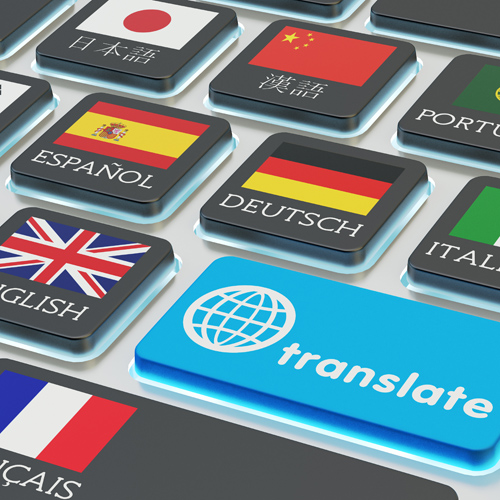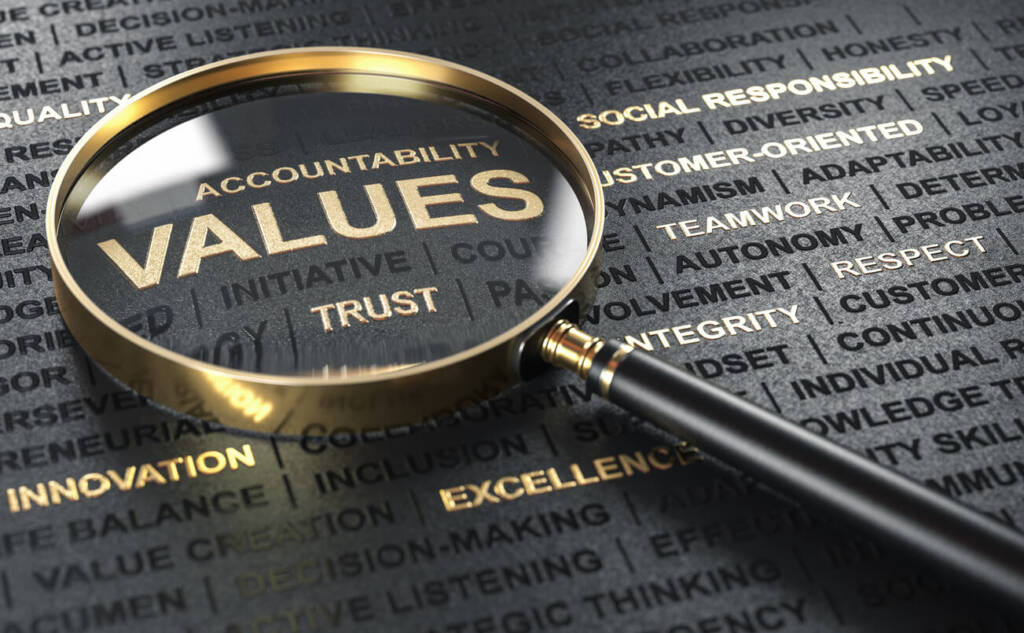Ethics and Compliance Hotlines Explained: What to Look For in a Vendor
Ethics reporting hotlines have become an essential tool for organizations committed to maintaining integrity and transparency. These confidential platforms empower employees to report concerns about misconduct without fear of reprisal, playing a crucial role in fostering an ethical workplace culture.
In an age when it’s nearly impossible not to leave a paper trail, anyone who works in a regulated industry is subject to investigation at any time, should suspicions around their behavior arise. Presumably, this hyper-visibility would lead to an increase in ethical behavior and a compliance mindset among professionals; however, there are still plenty of bad actors afoot who cross the line and trigger exponentially unfortunate consequences for themselves and your organization. Ethics reporting hotlines serve as a proactive measure to identify, address, and prevent this type of unethical behavior, thereby protecting the innocent and contributing to the overall success and sustainability of the organizations that implement them.
What Are Ethics and Compliance Hotlines?
An ethics hotline is a confidential and secure platform for employees to report workplace incidents or concerns without fear of reprisal. Employees may access the hotline 24 hours a day, seven days a week via multiple channels, including phone, email, online form, or other convenient, anonymous communication methods. All reports are acknowledged, recorded, and thoroughly documented, which aids in prompt investigations. The platform can also solicit feedback from employees to continuously improve its overall effectiveness.
Also called whistleblower or compliance hotlines, these platforms are often managed by a third-party service provider to ensure utmost impartiality and confidentiality. Hotlines have historically utilized call centers with live operators, but software-only platforms are rapidly eclipsing operator-run hotlines.
This type of reporting system operates in compliance with relevant laws and regulations governing whistleblower protection, preventing any retaliation or adverse actions as a result of reporting in good faith. Having one in place demonstrates the importance of ethical behavior and upholding organizational values.
Ethics hotlines are subject to oversight by internal or external bodies to ensure transparency and fairness in handling reported issues. Either the vendor or a company’s compliance team will provide training to employees on the purpose and use of the hotline, as well as the fundamentals of ethical decision-making.
How Do Ethics Hotlines Work?
There may be subtle differences between platforms, but here is a general overview of how ethics hotlines work:
- An employee or company stakeholder observes or suspects unethical behavior, misconduct, or policy violations within their organization.
- The individual contacts the ethics hotline via phone, text, email, or an online reporting form. Users can choose to remain anonymous throughout the reporting process.
- Trained personnel receive reports and document essential details such as the nature of the concern, individuals involved, and any supporting evidence provided. Each report is assigned a unique identifier for tracking purposes.
- The organization’s ethics or compliance team conducts an initial assessment of the report to determine its credibility and severity.
- Urgent matters or those requiring immediate attention are escalated for prompt investigation.
- Investigators are assigned to thoroughly examine the reported concern. They gather additional evidence, interview relevant parties, and assess the situation impartially.
- Based on the investigation findings, appropriate actions are taken to address the reported issue. This may include disciplinary measures, policy revisions, employee training, or other corrective actions.
- Throughout the process, the whistleblower may receive updates on the status of their report.
- Once the investigation is concluded, the outcome is communicated to the whistleblower, often while maintaining confidentiality of specific details.
Oversight committees or external auditors may regularly review hotline operations to ensure compliance and fairness. To aid in fostering a culture of compliance and ethical behavior, hotline operators continuously monitor and analyze reported concerns to identify trends or systemic issues.
Are Ethics Hotlines Effective?
Ethics hotlines have been shown to:
- Enable early detection and intervention in cases of unethical behavior or policy violations within the organization;
- Encourage accountability among employees by providing a confidential mechanism for reporting misconduct and ensuring that it is addressed appropriately;
- Demonstrate an organization’s commitment to transparency and ethical conduct, thereby enhancing trust among employees and stakeholders;
- Help prevent minor issues from escalating into major scandals by addressing concerns proactively and promptly;
- Safeguard an organization’s reputation by addressing unethical behavior internally before it becomes public knowledge;
- Minimize legal and financial risks associated with regulatory non-compliance, lawsuits, fines, or damage to brand reputation;
- Provide valuable feedback for improving organizational processes, policies, and culture based on reported concerns and trends;
- Contribute to a positive work environment where employees feel empowered to uphold ethical standards and contribute to a culture of compliance and integrity;
- Help organizations comply with legal and regulatory requirements related to whistleblowing and reporting of misconduct;
- Boost employee morale by demonstrating that an organization takes ethics seriously and values the well-being of its employees; and,
- Build trust and confidence among stakeholders — including customers, investors, and partners — by demonstrating a commitment to ethical behavior and corporate governance.
How To Choose The Right Ethics Hotline Vendor
There are two major factors to consider when searching for the right ethics hotline solution: the tool and the vendor.
Key features to look for in a tool include:
Confidentiality and anonymity
The hotline should provide a confidential reporting channel for whistleblowers to report concerns without fear of retaliation or disclosure of their identity. It should have mechanisms to ensure that information shared through the hotline is kept confidential to the extent possible while investigating reported issues.
Accessibility
The ideal tool is available 24/7 to allow employees to report concerns at any time, including outside of regular working hours. It should offer multiple communication channels such as phone, email, online form, or mobile app for easy access.
Multilingual functionality
The hotline should be accessible to all employees at a company, no matter what language they speak. If utilizing a call center, there should be operators on staff who can translate or field reports submitted in multiple languages.
Documentation and real-time tracking
The ideal software can maintain detailed records of all reports and investigations for compliance, transparency, and accountability purposes. It assigns unique identifiers to each report for tracking and monitoring purposes and provides real-time visibility for operators or investigators. It also has the ability to track trends, identify areas of concern, and measure the overall effectiveness of the hotline.
Integration
Hotline software should be able to integrate seamlessly with an organization’s existing technology stack to prevent lengthy implementation times, cumbersome patches, or disruptions to service.
Compliance and oversight
The hotline should have the capability to adhere to legal and regulatory requirements governing whistleblowing and reporting of misconduct, and be subject to oversight by regulatory bodies, internal audit functions, or external auditors to ensure compliance with best practices and standards.
Data security
The platform should be able to guarantee that all employee data remains secure against cyberattacks or internal hackers. Any messaging functionality should be encrypted to prevent hacking or corruption.
Continuous improvement mechanisms
A software that solicits regular feedback from whistleblowers and stakeholders can help improve its overall effectiveness and efficiency. If possible, it should have the ability to cross-check and suggest updates to policies, procedures, and practices based on feedback and emerging best practices.
These essential software features should be paired with equally important vendor qualities:
Experience and expertise
The ideal hotline vendor has demonstrated experience in providing ethics hotline reporting solutions, including knowledge of industry best practices and regulatory requirements.
Communication, training, and awareness
The vendor communicates the purpose and function of the ethics hotline to employees through training, awareness campaigns, educational resources, and regular updates.
Independence and impartiality
The ideal vendor should operate independently from company management to ensure impartiality and fairness in handling reported concerns. The hotline itself may also be overseen by an independent committee or external auditor to maintain integrity in the reporting process.
Trained personnel
The vendor’s company should be staffed by trained personnel who can receive, document, and assess reports impartially and confidentially. Personnel may include ethics officers or compliance professionals.
Prompt response time
Hotline operators should provide prompt acknowledgment of received reports and initiate timely investigations into reported concerns. They should communicate with whistleblowers to provide updates on the status of their reports and the progress of investigations.
Customization and flexibility
The best vendors have the ability to tailor the ethics hotline reporting solution to meet the specific needs and requirements of their clients, including customization of reporting channels, workflows, and reporting forms.
Confidentiality and security guarantee
Vendors should have a strong commitment to confidentiality and data security, including demonstrated adherence to industry standards and regulations for protecting sensitive information.
Accessibility and support
In addition to 24/7 availability of reporting channels, the vendor should provide responsive customer support to address inquiries, provide assistance, and resolve issues promptly.
Continuous improvement and innovation
The ideal vendor should demonstrate a dedication to ongoing improvement and innovation in ethics hotline reporting solutions, including the adoption of new technologies and best practices to enhance effectiveness and efficiency.
Ethics Reporting Hotlines In Action
A handful of high-profile cases over the past few decades have had a significant impact on the implementation and improvement of ethics hotline solutions, with some even leading to new or updated legislation. The following cases demonstrate the importance of confidential reporting mechanisms in uncovering malfeasance and bringing wrongdoers to justice, as well as protecting those who come forward with key information.
Enron Scandal (2001)
In 2001, now-defunct American energy company Enron Corporation experienced widespread internal accounting fraud, with executives engaging in complex financial schemes (nicknamed “Enronomics”) to hide the company’s financial losses and artificially inflate profits to mislead investors and regulators. This fraud led to Enron’s bankruptcy in December 2001, resulting in the loss of billions of dollars in shareholder value and significant job losses. Top executives, including CEO Jeffrey Skilling and CFO Andrew Fastow, were convicted of fraud and other charges.
The Sarbanes-Oxley Act of 2002 was enacted in response to this scandal, introducing stricter corporate governance and accountability measures. One key provision of this legislation was the requirement for public companies to establish ethics reporting hotlines, enabling employees to report concerns about financial misconduct anonymously and confidentially. The adoption of ethics hotlines across various industries emphasized their importance in preventing and detecting corporate fraud.
Siemens (2008)
In 2008, Siemens, a global engineering company, faced a massive bribery and corruption scandal, in which employees were found to have paid bribes to secure contracts in multiple countries, violating both local laws and international anti-corruption agreements. The scandal resulted in Siemens paying over $1.6 billion in fines to settle charges with U.S. and German authorities, severely damaging the company’s reputation and leading to the resignation of top executives.
To address these issues, Siemens established a robust ethics hotline, encouraging employees to report any misconduct without fear of retaliation. The hotline played a crucial role in uncovering additional instances of bribery, prompting comprehensive internal investigations. Siemens subsequently implemented significant reforms, including strengthening its compliance programs, enhancing anti-corruption training, and increasing oversight mechanisms.
Wells Fargo (2016)
The 2016 Wells Fargo bank scandal revealed that employees had opened millions of unauthorized bank accounts and credit cards to meet aggressive sales targets. These unethical practices, which were incentivized by the company’s sales culture, inevitably resulted in widespread financial harm to customers. The scandal led to fines totaling $185 million from regulatory bodies, severe damage to Wells Fargo’s reputation, and the resignation of CEO John Stumpf. Over 5,000 employees were fired due to their involvement in the fraudulent activities.
In response, Wells Fargo enhanced its ethics reporting hotline, making it easier for employees to report unethical sales practices. The hotline was instrumental in identifying and addressing misconduct, leading to significant internal reforms. These changes included restructuring sales incentives, revising corporate governance, and improving oversight and accountability within the organization.
Boeing (2019)
In 2019, two separate Boeing 737 MAX aircraft crashes resulted in 346 fatalities, raising serious concerns about the aircraft’s safety. Investigations revealed that issues with the aircraft’s Maneuvering Characteristics Augmentation System (MCAS) contributed to the crashes. The 737 MAX was grounded worldwide, costing Boeing billions in losses and severely damaging its reputation.
Congressional hearings and regulatory scrutiny followed, leading to significant reforms in aviation safety and oversight. Whistleblowers within Boeing raised concerns about safety issues related to the 737 MAX’s design and certification process. The availability of an ethics reporting hotline enabled employees to come forward with their concerns, facilitating investigations and ensuring accountability. Boeing implemented reforms aimed at improving safety culture, transparency, and oversight within the company, including changes in leadership and increased regulatory compliance.
Uber (2017)
In 2017, rideshare company Uber faced multiple scandals related to its workplace culture, including allegations of sexual harassment, discrimination, and unethical business practices. These issues were indicative of a toxic corporate culture and led to significant public backlash, regulatory scrutiny, and the resignation of CEO Travis Kalanick. Uber’s reputation was severely damaged, affecting its business operations and growth.
In response, Uber implemented an ethics hotline to provide employees with a confidential channel to report misconduct and workplace issues. The hotline played a crucial role in uncovering and addressing numerous instances of harassment and discrimination. As a result, Uber undertook substantial cultural changes, leadership reforms, and increased accountability measures. This included hiring a Chief Diversity Officer and implementing new HR policies to promote a healthier workplace environment.
Honda Implements Star’s Incident and Policy Management Solution

Compliance And Ethics Hotline Implementation Tips
The examples given in the previous section serve as both cautionary tales and as roadmaps for successful utilization of incident reporting mechanisms. When implementing your own ethics hotline solution, use the mistakes and successes of others to identify the best tool for your organization’s needs and regulatory requirements.
The following tips will help ensure your organization implements the most effective, secure, and user-friendly tool available.
- Clearly define the objectives and scope of the ethics reporting hotline, including the types of concerns that can be reported and the expected outcomes of the reporting process.
- Ensure that your organization has policies in place to prevent retaliation and support whistleblowers who come forward.
- Obtain visible support from senior leadership to demonstrate the company’s commitment to ethics, integrity, and transparency.
- Choose a reputable vendor with experience in providing ethics hotline solutions, ensuring the platform meets your organization’s needs for confidentiality, security, and accessibility.
- Tailor the hotline to align with your organization’s culture, values, and reporting processes. Choose a tool with options for anonymous reporting and multiple reporting channels.
- Launch a comprehensive communication campaign to raise awareness about the ethics reporting hotline, its purpose, and how to use it. Provide training for employees on ethical decision-making and the importance of reporting concerns.
- Guarantee confidentiality and anonymity for whistleblowers to encourage reporting without fear of reprisal. Clearly communicate the measures in place to protect whistleblowers’ identities and the confidentiality of reported information.
- Develop clear and transparent procedures for receiving, documenting, and investigating reported concerns. Define roles and responsibilities for investigators and decision-makers involved in the reporting process.
- Choose a vendor whose hotline operators and investigators are thoroughly trained on handling reports sensitively, impartially, and confidentially.
- Offer ongoing support and resources to employees who use the hotline, including guidance on reporting procedures and access to counseling services if needed.
- Choose a tool with the ability to monitor and evaluate the effectiveness of the hotline program, including tracking the number and types of reports received, response times, investigation outcomes, and trends in reported concerns.
- Regularly review and update the ethics reporting hotline based on employee feedback, emerging best practices, and changes in organizational needs or regulatory requirements. Solicit input from stakeholders to identify areas for improvement and innovation.
Implementing a robust ethics hotline not only helps organizations comply with legal and regulatory requirements but also promotes a culture of accountability and trust. If you’re searching for your ideal reporting solution, request a software demo to see how StarCompliance’s Incident & Policy Management solution can support a more ethical and transparent workplace.

Empowering Whistleblowing



